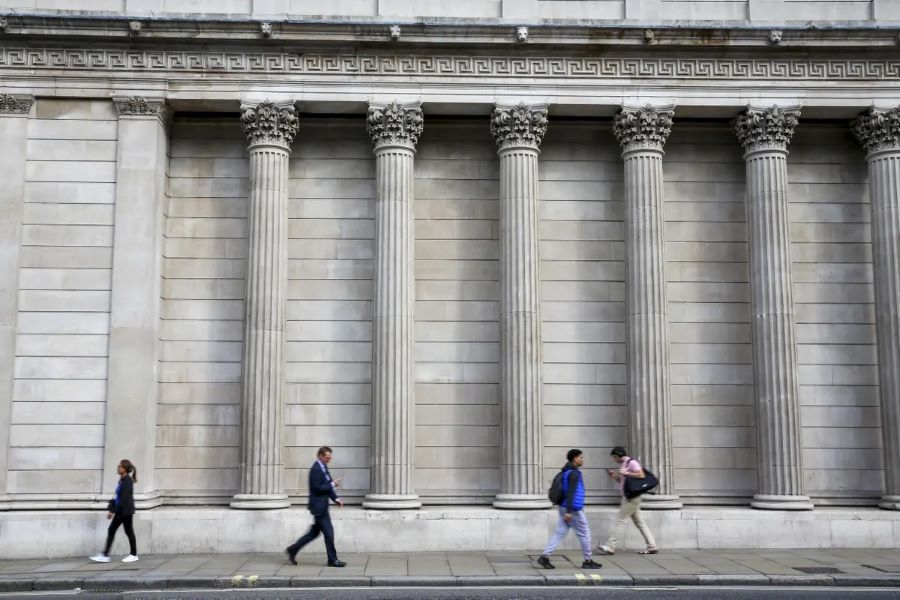The Bank of England (BOE) held its key interest rate at a 16-year high on Thursday but signaled that it might soon join several European peers in reducing borrowing costs. The U.K.’s central bank maintained its interest rate at 5.25% for the seventh consecutive meeting. This decision aligns with the forecasts of investors and economists.
Despite the U.K.’s inflation rate falling to the BOE’s 2% target in May, the Monetary Policy Committee (MPC) remains cautious. During this meeting, two of the nine MPC members voted to lower the rate to 5%. This mirrored the voting pattern from the May meeting.
European Central Banks Lead in Rate Cuts
Unlike the U.S. The Federal Reserve has indicated it is unlikely to lower its key interest rate soon. In contrast, several European central banks have been proactive in cutting borrowing costs this year. On Thursday, Switzerland’s central bank reduced its key rate for the second consecutive meeting. Earlier, on June 6, the European Central Bank (ECB) also lowered its rate.
The Bank of England has hesitated to join this trend, concerned about inflation pressures despite the recent moderation. Norway’s central bank has similarly refrained from rate changes, keeping its rate steady on Thursday.

Citigroup Strategic Focus on Citi Services Pays Off with Investor Confidence
Citigroup has captured investor attention with its emphasis on Citi Services, a pivotal but often underestimated segment responsible for half of its net profits
Inflation Concerns Remain
The Bank of England attributes much of the recent decline in U.K. inflation to falling energy and food prices. However, it worries that these declines will not continue, and rising service prices could push inflation back above its target later this year. If wage growth remains high, this inflation revival could be long-lasting.
The central bank anticipates inflation to stabilize around its target by the end of next year as wage increases cool. However, policymakers need more evidence before considering a rate cut. They plan to review this in their next meeting in August, where new forecasts for growth and inflation will be published.
Policy Decisions Closely Balanced
Records from the meeting indicate that some MPC members are edging towards supporting a rate cut. “For these members, the policy decision at this meeting was finely balanced,” the BOE stated.
Political Context and Economic Impact
The Bank of England decision to maintain rates came ahead of a crucial general election on July 4. This move offered little comfort to the ruling Conservative Party. The party continues to lag significantly behind the opposition Labour Party in the polls.
Like President Biden, U.K. Prime Minister Rishi Sunak has seen limited political gains from easing inflation. While Britons are beginning to experience a recovery in spending power after substantial losses following Russia’s invasion of Ukraine, many are also facing higher mortgage costs. This is due to the BOE’s tight borrowing policies.
Ahead of the election, BOE policymakers have stopped making public comments about the economy, resuming only after the vote. The BOE emphasized that the timing of the election was “not relevant” to its rate decision.
Future Rate Cuts on the Horizon?
Many economists predict the BOE might lower its key rate at its next meeting, while others suggest a delay until November due to the recent modest slowdowns in wages and service prices. The timing of a potential rate cut remains uncertain, particularly in relation to the Fed. However, with the U.K. economy in a weaker position compared to the U.S., there is a stronger case for supporting it through lower borrowing costs.
The U.K. economy saw a return to growth in the first quarter after a contraction in the latter half of the previous year. However, recent data showed GDP stagnated in April. The Bank of England (BOE) noted that the economy “appears” to have grown more rapidly than expected in the first half of the year. Additionally, wage growth and other inflation signals have “continued to moderate.”
As the economic landscape evolves, the BOE’s upcoming decisions will be critical. They will shape the U.K.’s financial stability and growth trajectory.
Secure your Barron’s Membership today and take advantage of an impressive 70% discount. Seize the opportunity to stay exceptionally informed with the latest financial updates, insightful analysis from Barron’s, expert guidance from Barron’s Premier Advisors, access to Barron’s carefully curated list of 1200 top recommendations, and entry to Barron’s Digital Magazine. Don’t miss out on this outstanding opportunity!

